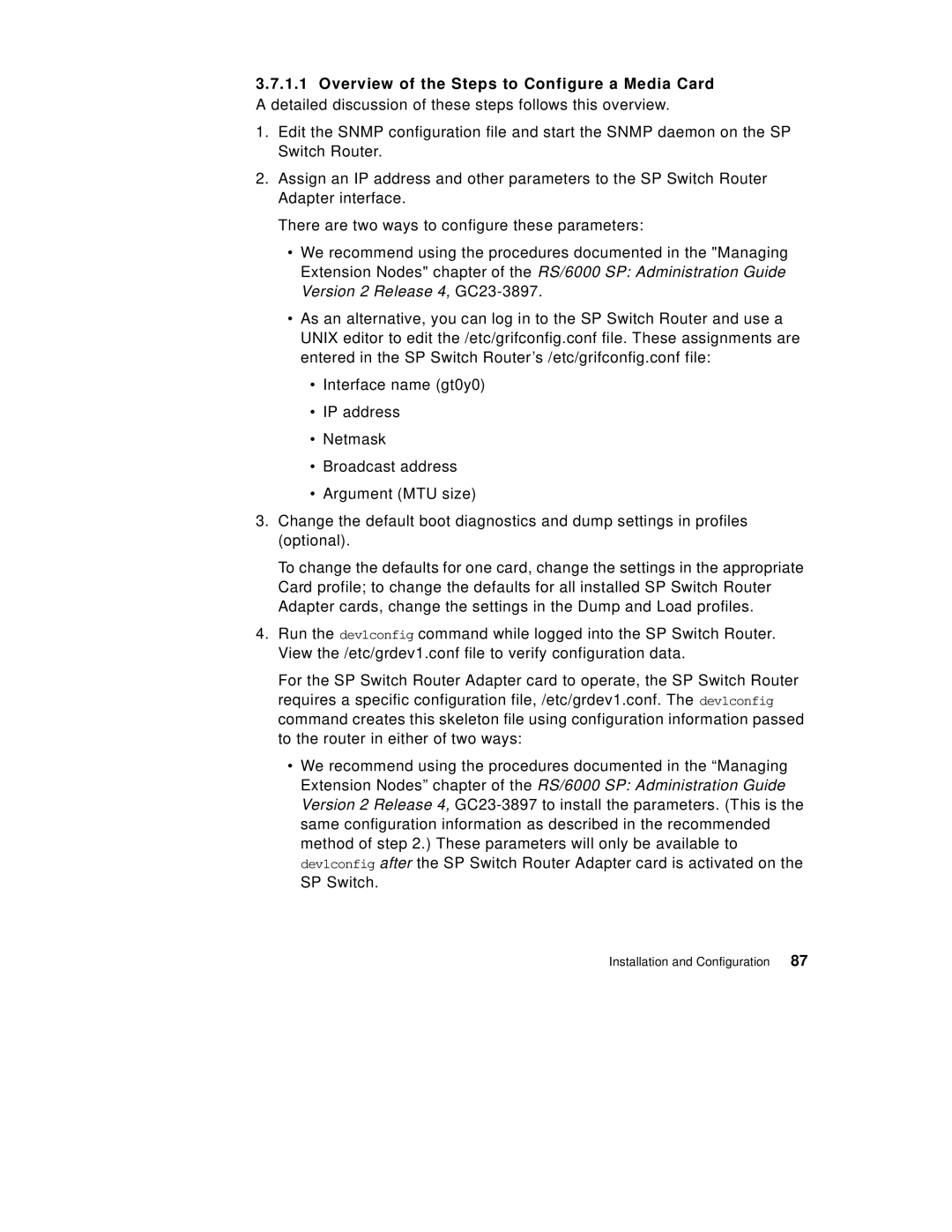3.7.1.1Overview of the Steps to Configure a Media Card A detailed discussion of these steps follows this overview.
1.Edit the SNMP configuration file and start the SNMP daemon on the SP Switch Router.
2.Assign an IP address and other parameters to the SP Switch Router Adapter interface.
There are two ways to configure these parameters:
•We recommend using the procedures documented in the "Managing Extension Nodes" chapter of the RS/6000 SP: Administration Guide Version 2 Release 4,
•As an alternative, you can log in to the SP Switch Router and use a UNIX editor to edit the /etc/grifconfig.conf file. These assignments are entered in the SP Switch Router’s /etc/grifconfig.conf file:
•Interface name (gt0y0)
•IP address
•Netmask
•Broadcast address
•Argument (MTU size)
3.Change the default boot diagnostics and dump settings in profiles (optional).
To change the defaults for one card, change the settings in the appropriate Card profile; to change the defaults for all installed SP Switch Router Adapter cards, change the settings in the Dump and Load profiles.
4.Run the dev1config command while logged into the SP Switch Router. View the /etc/grdev1.conf file to verify configuration data.
For the SP Switch Router Adapter card to operate, the SP Switch Router requires a specific configuration file, /etc/grdev1.conf. The dev1config command creates this skeleton file using configuration information passed to the router in either of two ways:
•We recommend using the procedures documented in the “Managing Extension Nodes” chapter of the RS/6000 SP: Administration Guide Version 2 Release 4,
Installation and Configuration | 87 |
